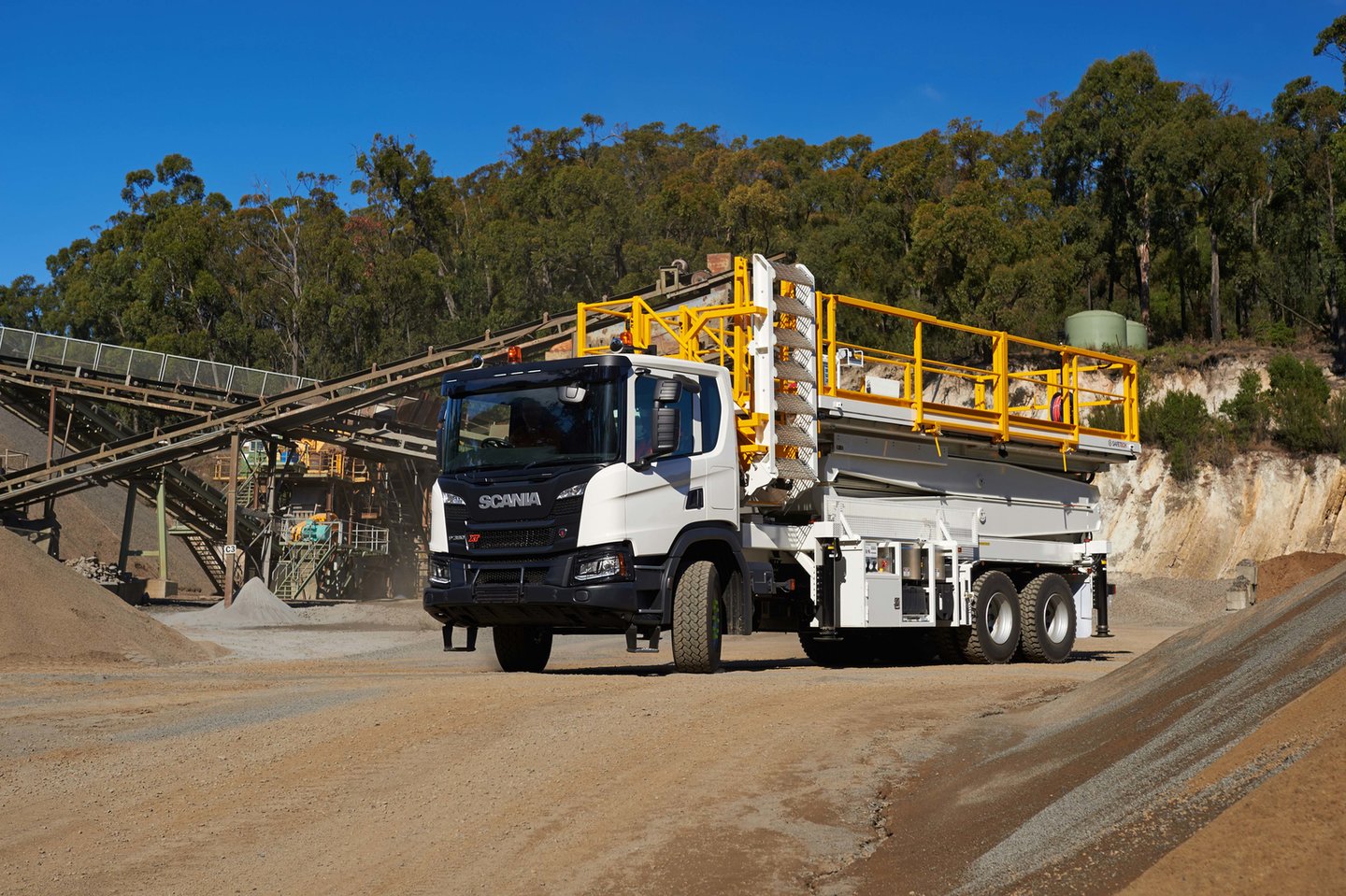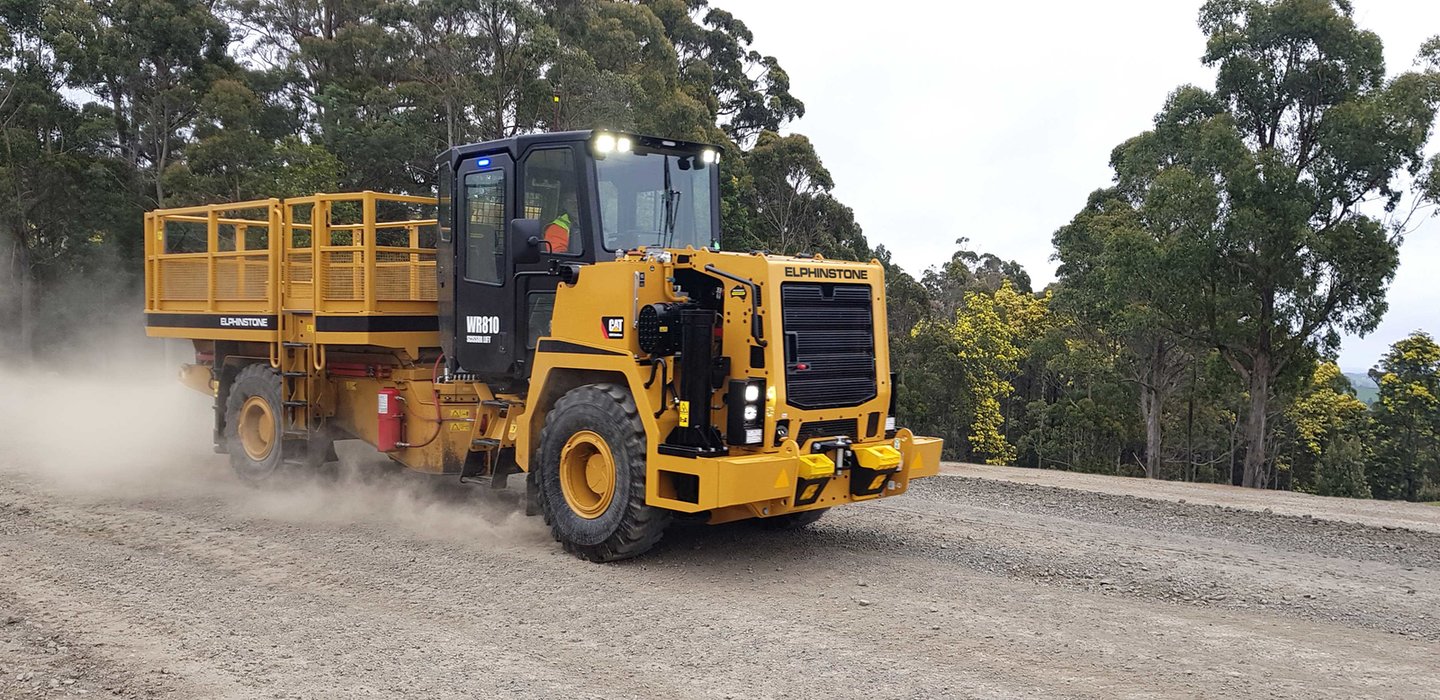
39-45 Della Torre Road, Moe Victoria 3825
t: 1800 674 566
e: sales@safetech.com.au
We are driven by innovation and have an in-house engineering team that sets the benchmark in custom design solutions. Our products are made to the highest industry standard by skilled tradespersons and technicians who take great pride in their work.
Safetech equipment is easy to operate, efficient, reliable, space-saving and long-lasting to deliver safety, productivity and peace of mind.
Combined with our national sales force, our product and installation teams work collaboratively with customers to create innovative solutions that deliver long-lasting results.
Our custom equipment for the mining sector has been recognised nationally, with interest growing around the globe.
Our latest product is a complex technical collaboration between Safetech and Scania’s specialised vehicles division.
Used to maintain the excavators found on mining sites, capable of lifting up to 1500 kgs of equipment and workers. Platform can be loaded from the side by forklift onto the 7.5m long platform. Integrated fold out stairs provide safe access to the platform.
At any height, the platform can traverse 3m from the rear of the truck. Reducing the need to park up against the excavator.
It’s designed and specified to handle harsh environments with self levelling stabilisers for ease of setup on site. Combine this with remote diagnostics, quality has not been compromised on any part of the EWP.
• Heavy capacity vibratory feeder change-out scissors with powered drive.
• Custom heavy capacity and mobile scissor lifts designed for vibratory feeder change out.
• Remote control with raise/lower and forward/back functions.
• Powered traversing bases and onboard power units.
• Turn a multiple day change out process into a few hours.
• Bi-directional trolley wheel setups, allowing travel on multiple sets of tracks.
• Onboard lithium batteries to provide mobility to the unit.
• Electric over hydraulic systems can provide power for scissor raise and lower, extend, retract and drive of traverse travel wheels.
• Hydraulic jacking points.
• Collapsible handrail around vibratory feeder unit.
Gorbel workstation bridge or jib crane systems are the perfect companion in any assembly, parts or processing facility.
Our cold rolled enclosed track with 2° taper delivers unmatched ease of movement
Hardware
Gorbel hardware is precision engineered to match our track system. Trolleys are designed to match our cold rolled profile. Our patented duracomp 4 wheels feature the same 2° taper as our track, delivering ultra smooth operation & unparalleled durability.
4 track profiles with capacities up to 2 tonnes
Safetech adjustable workstation
Safetech have over 5000 lift tables working hard across Australia on all types of work-sites.
They are helping to support healthy and dynamic working practices by enabling workers to adjust their working height.
We design, specify and build each table to the highest quality and to suit each individual application.
Safetech Customer Care provides all of this and more!
39-45 Della Torre Road, Moe Victoria 3825
t: 1800 674 566
e: sales@safetech.com.au

Australia's premier dock products and lifting solutions company

39-45 Della Torre Road, Moe Victoria 3825
t: 1800 674 566
e: sales@safetech.com.au
Why Safetech?
We are driven by innovation and have an in-house engineering team that sets the benchmark in custom design solutions. Our products are made to the highest industry standard by skilled tradespersons and technicians who take great pride in their work.
Safetech equipment is easy to operate, efficient, reliable, space-saving and long-lasting to deliver safety, productivity and peace of mind.
Combined with our national sales force, our product and installation teams work collaboratively with customers to create innovative solutions that deliver long-lasting results.
Our custom equipment for the mining sector has been recognised nationally, with interest growing around the globe.
Elevated Work Platforms
Our latest product is a complex technical collaboration between Safetech and Scania’s specialised vehicles division.
Used to maintain the excavators found on mining sites, capable of lifting up to 1500 kgs of equipment and workers. Platform can be loaded from the side by forklift onto the 7.5m long platform. Integrated fold out stairs provide safe access to the platform.
At any height, the platform can traverse 3m from the rear of the truck. Reducing the need to park up against the excavator.
It’s designed and specified to handle harsh environments with self levelling stabilisers for ease of setup on site. Combine this with remote diagnostics, quality has not been compromised on any part of the EWP.
Mining Maintenance Scissors
• Heavy capacity vibratory feeder change-out scissors with powered drive.
• Custom heavy capacity and mobile scissor lifts designed for vibratory feeder change out.
• Remote control with raise/lower and forward/back functions.
• Powered traversing bases and onboard power units.
• Turn a multiple day change out process into a few hours.
• Bi-directional trolley wheel setups, allowing travel on multiple sets of tracks.
• Onboard lithium batteries to provide mobility to the unit.
• Electric over hydraulic systems can provide power for scissor raise and lower, extend, retract and drive of traverse travel wheels.
• Hydraulic jacking points.
• Collapsible handrail around vibratory feeder unit.
Gorbel Bridge & Jib Cranes
Gorbel workstation bridge or jib crane systems are the perfect companion in any assembly, parts or processing facility.
Our cold rolled enclosed track with 2° taper delivers unmatched ease of movement
Hardware
Gorbel hardware is precision engineered to match our track system. Trolleys are designed to match our cold rolled profile. Our patented duracomp 4 wheels feature the same 2° taper as our track, delivering ultra smooth operation & unparalleled durability.
4 track profiles with capacities up to 2 tonnes
Workstation Lift Tables
Safetech adjustable workstation
Safetech have over 5000 lift tables working hard across Australia on all types of work-sites.
They are helping to support healthy and dynamic working practices by enabling workers to adjust their working height.
We design, specify and build each table to the highest quality and to suit each individual application.
Safetech Customer Care provides all of this and more!
39-45 Della Torre Road, Moe Victoria 3825
t: 1800 674 566
e: sales@safetech.com.au

Australia's premier dock products and lifting solutions company


